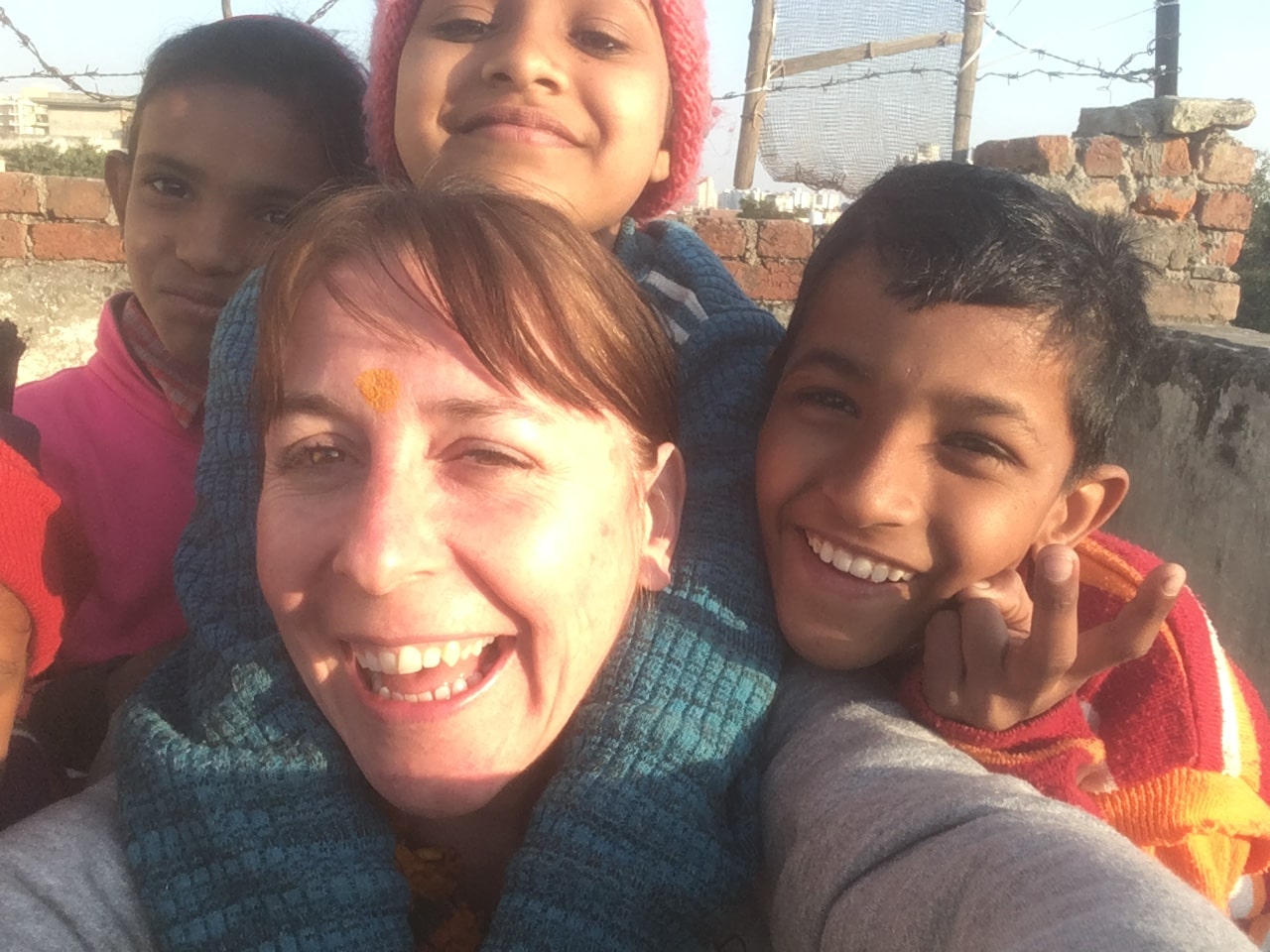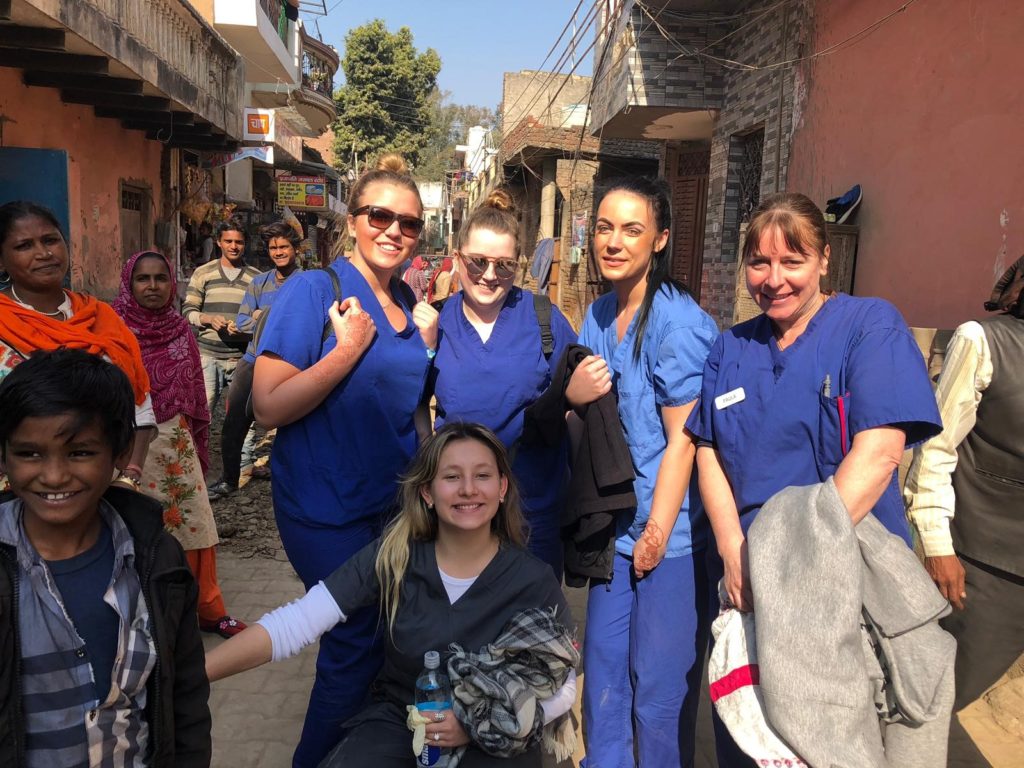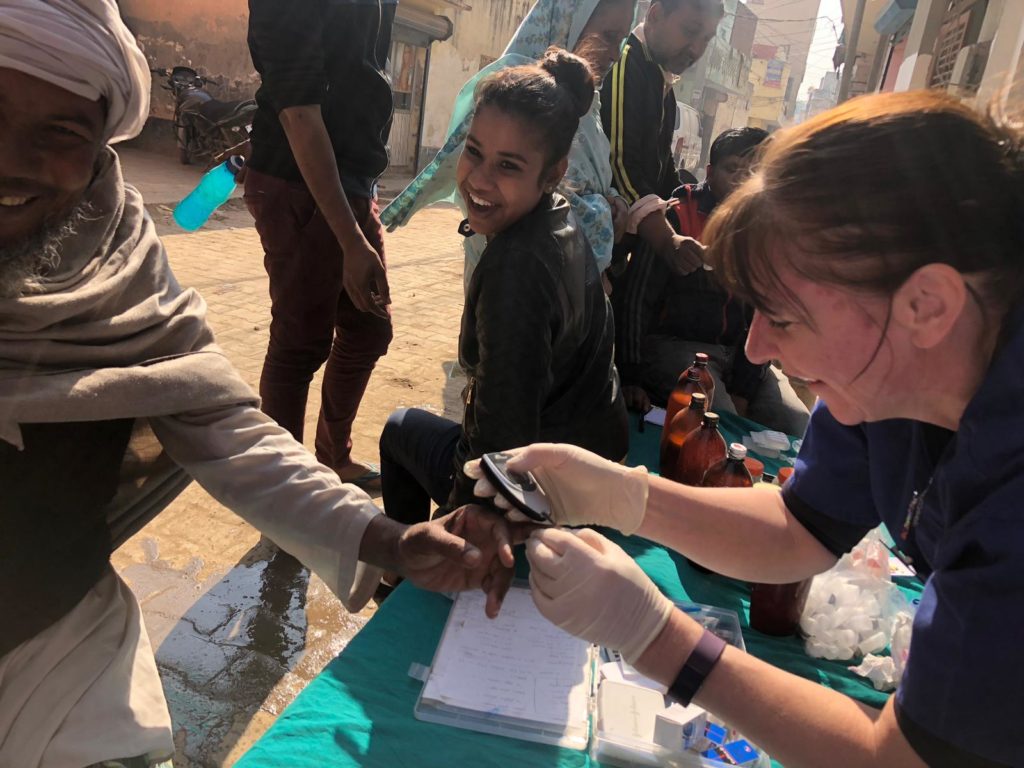Nursing students feeling invigorated and up-skilled after overseas placement
Date 11.03.2019
11.03.2019
Nursing students in the second or third year of their degrees have the option of taking a 2-3 week overseas, observational only clinical placement. The press office caught up with some of them who went to India and Sri Lanka about what they got up to whilst there and what they got out of the trip.
Star Dowling, third year Adult Nursing student, was one of a number of students who travelled to Sri Lanka: “I’m usually a bit more ‘reserved’ with things like this, but I got over my anxieties and threw myself in – and I’m so glad I did!
“In three weeks we saw and experienced so much. For those of us who went to Sri Lanka, we had a look at a half-way house for women, got an insight into how they view eating disorders there – it’s not as common as here, it isn’t something usually diagnosed – and a school for special needs children. They don’t have branches of nursing like mental health and learning disabilities which – seeing as I’m MH trained myself – was a surprise.
“Our programme was broadened out quite a bit as we had a lecture from a herbal doctor about how herbal medicine and faith are used in Sri Lanka to help people with mental health issues and met Buddhist monks.
“When we had a chance for some downtime, we also had lessons in driving a ‘Tuk Tuk’ – auto-rickshaws – and I even released a baby turtle into the sea as part of a conservation project.
“Suffice to say, it was the best of best experiences. I didn’t know what to expect but Sri Lanka really opened my eyes about how different cultures provide different types of health care and make it work.”
Paula Dexter, a third year Adult Nursing student, added: “We do not even think in the UK about how we use the equipment and supplies at our finger-tips – maybe we are a bit wasteful, because things are used much more sparingly in the slum clinics. You certainly know how to think on your feet and improvise there! Going to Faridabad makes you appreciate the ingenuity and intelligence of their health staff.
“Learning how to communicate with people who don’t speak English and relying on body language and visual cues, is a really useful skill to have in a country like the UK, where as a nurse you could meet anyone from any background, whether patient or staff.
“I’m happy to be back in the UK, but would I go to India again on a placement? Absolutely!”
Alex Kenning, third year Adult Nursing student, travelled to Faridabad, India as well. She said that her expectations were challenged soon after landing: “I’ve never been to India before, but although we’d had a briefing with last year’s nursing students who went abroad, right from the get go we saw how much of a different world India is. We landed late at night – tired and bleary-eyed – and almost got into to a taxi that wasn’t pre-arranged for us! Thankfully, our hosts picked up the phone right away and made sure we were on the right road.
“India was a real eye-opener as clinics in some slum clinics are really, really different to here in the UK! We are very lucky and a bit spoiled in the UK. We want ‘more’ but the people we met seemed happier, despite having what we would see as less.
“I’ve just got my first job, back home in Dudley and know I’ll take my appreciation of how hard medical teams work in India back with me. It’s an opportunity nursing students should never pass on.”
Shelby Pilgrem became the first University of Northampton Learning Disability nursing student to have a clinical placement in India. She explained why she went: “The main reason I went was to experience healthcare in a part of the world where, unfortunately, health services aren’t as well funded like here in the UK. It was a real eye-opener.
“A big part of learning disability nursing is communication. I know that might sound a bit obvious, but people who have an LD won’t talk to you in the way you are used to. And each of them is different to the next, so their own communication style will be very unique. Going to India and working with people who don’t speak English was a big learning curve for me, it was so useful.”

